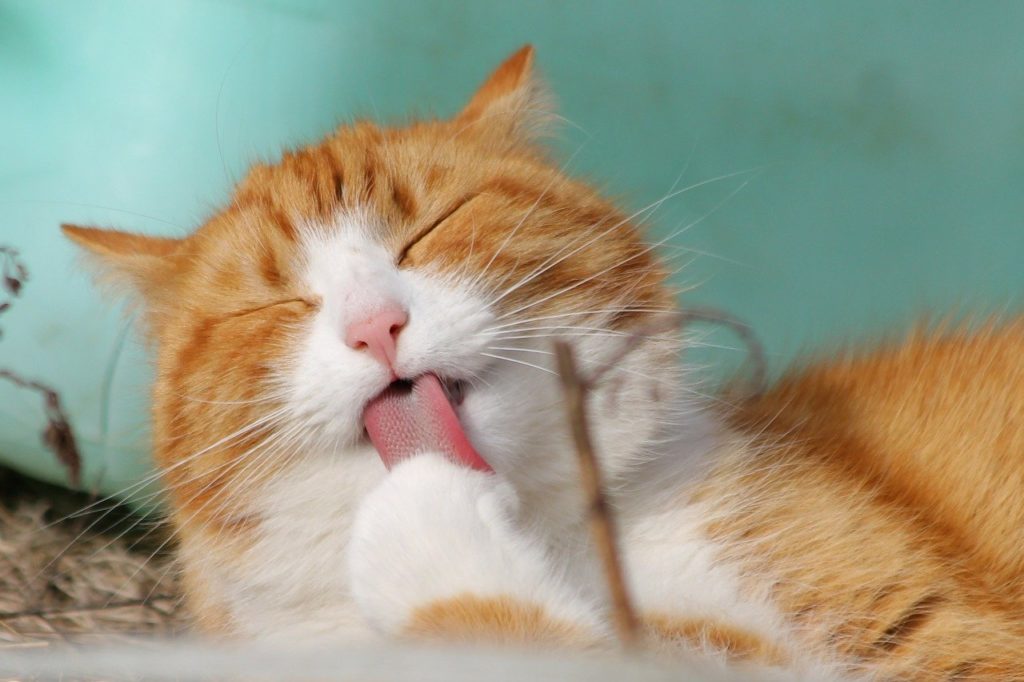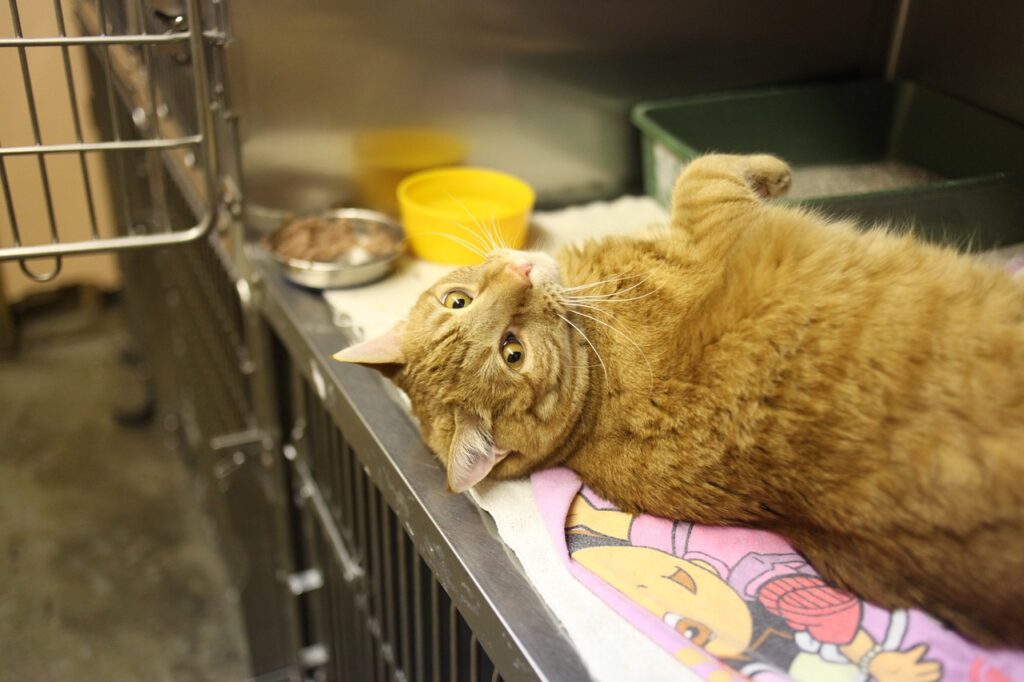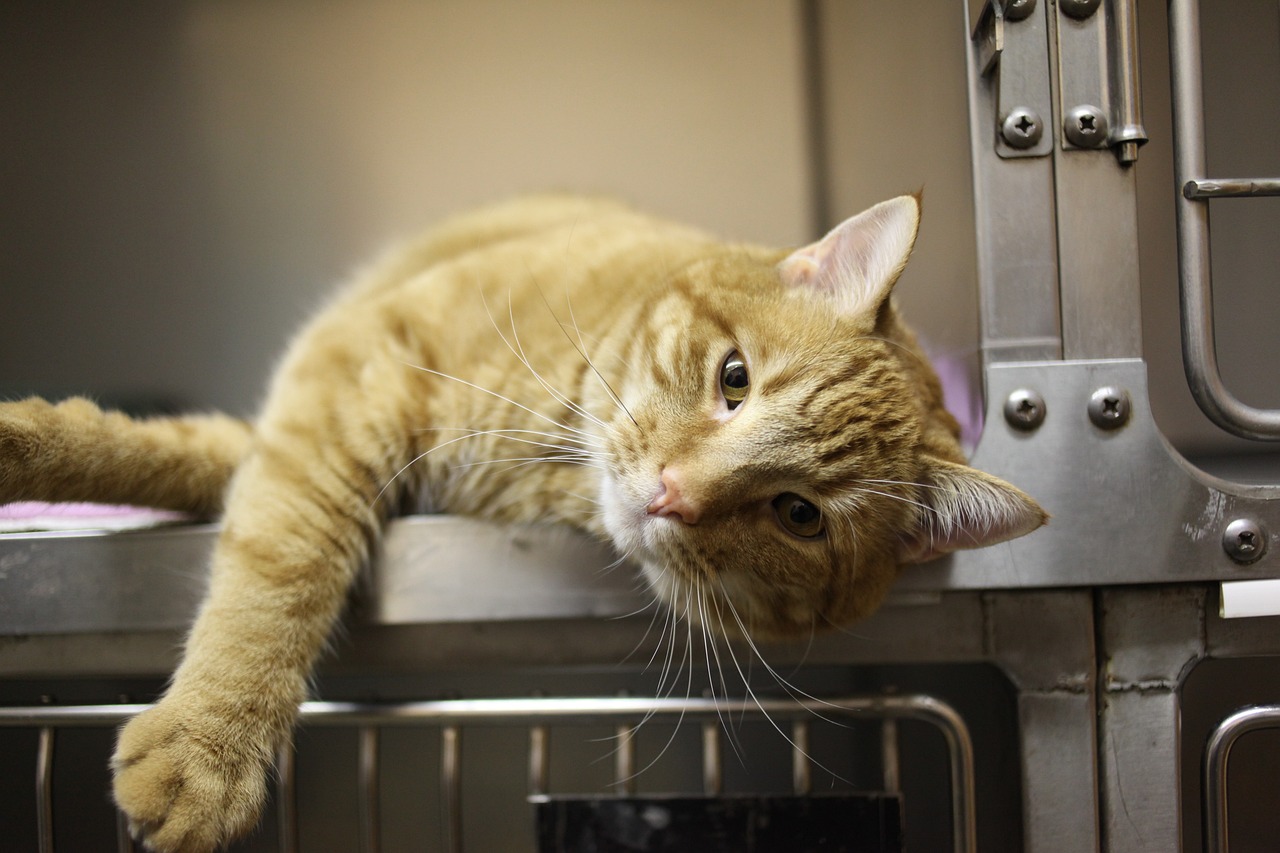We all know that fleas are bad news for cats. They bite cats, causing them to itch, which increases the risk of intense scratching, wounding, and infections. But there is one health risk associated with these bloodsucking insects that is often overlooked — flea anemia. Here’s everything you need to know about flea anemia in cats.
Flea anemia in cats fast facts
- Fleas can drink so much blood that they cause anemia in their victims. Fleas feed on the blood of the cats they are infesting. One flea may not be able to drink enough blood to create serious blood problems. But full-blown flea infestations are a different story. Lots of fleas can drink lots of blood. And if your cat loses enough healthy red blood cells, she can become anemic. Don’t underestimate flea anemia in cats because it’s actually a life-threatening medical condition, especially if your cat is sensitive or already medically vulnerable.
- Some cats are more vulnerable to flea anemia. Kittens are particularly vulnerable to flea anemia because of a variety of reasons. Obviously, they are a lot smaller than adult cats, and therefore have generally less blood to supply to the fleas. Kittens are also still developing, so they are overall just more vulnerable to health conditions, not just flea anemia. Senior cats are also particularly vulnerable. Their immune systems are no longer strong enough to withstand the serious blood loss that comes with anemia. As older pets, they are also more likely to develop even more health conditions, making your flea anemia problem even worse.
- It can be difficult to diagnose a flea infestation and flea anemia. Fleas are small creatures, clocking in at about one to three millimeters only even as adults. Their small size is advantageous because they can effectively hide in your cat’s fur. This can make it difficult to know that your cat has fleas. Some cats also don’t scratch that much, especially those who are not allergic to flea bites and those who constantly groom themselves. This can make a flea infestation even more difficult to diagnose. Cats are just different from each other, so they may show different physical and behavioral symptoms.

Symptoms you should look out for
- Physical symptoms are easier to spot. A cat with flea anemia will show physical and behavioral symptoms. Physical symptoms are generally easier to spot because you can see hard evidence. Pale gums are some of the biggest flea anemia symptoms. Make sure to know the normal color of your cat’s gums, so you can immediately spot when the color has changed. Look at their stool as well. Your cat may have flea anemia if her stool is dark or has dark blood in it. A cat suffering from a health condition, not just flea anemia, will also suffer from weight loss.
- Behavioral symptoms can be more difficult to see. Behavioral symptoms are more difficult to spot, especially if you don’t give particular attention to your cat on a day-to-day basis and you don’t know her general attitude. A cat with flea anemia will be lethargic. You may also notice a lack of appetite, which can then lead to weight loss. You may not have the tools to see these, but a cat with flea anemia may also suffer from an increased heart rate and respiratory rate. You may even see her breathing through her mouth to get more oxygen and rapid chest movements.
- Be proactive in looking for physical and behavioral changes. You should understand your cat at the physical and behavioral levels. Know their physical characteristics and habits, so that when you notice something different, you are aware that she may be developing some kind of medical condition. It’s important to suspect that your cat is sick at the soonest possible time, so you can go to the veterinarian immediately to deal with the problem.
Treatments you should seek
- Consult a veterinarian and nobody else. Flea anemia in cats can be life-threatening. If you see the symptoms, don’t rely on Google to fix the problem yourself. Consult a veterinarian. The medical professional will be able to properly diagnose the medical condition by conducting a variety of tests, including those that measure blood count, hematocrit level, and reticulocyte count. The veterinarian will also be able to suggest solutions to the problem, taking into consideration the severity of the case and your cat’s medical condition and history.
- Listen carefully to the veterinarian and follow instructions diligently. Cats can have anemia because of a variety of causes, and the veterinarian will be able to suggest solutions depending on the cause. In the case of flea anemia, the medical professional may prescribe flea treatments. In severe cases, blood transfusions may even be necessary. The point is, you should let your veterinarian do the heavy lifting, but you need to do your part when you get home. Use the flea treatment as advised by the vet. Give iron supplements and vitamins as instructed.
- Clean your surroundings. Fleas can thrive not just on pets themselves, but also on properties. They can be on the places that your cat frequents, such as her bedding, your carpets, and even your beds, chairs, and sofas. Wash these items to kill the fleas. You can also kill the fleas directly with diatomaceous earth or salt. But be sure to vacuum them up once they are dead. If you don’t clean your surroundings, your cat will be perpetually vulnerable to fleas, and therefore be vulnerable to flea anemia as well.

Flea anemia in cats can be life-threatening
Fleas can suck so much blood from your cat that she can develop flea anemia. Flea anemia symptoms include bloody and dark stools, pale gums, increased heart and respiratory rates, a lack of appetite, and weight loss.
Avoid trying to cure flea anemia by yourself. Consult a veterinarian. The medical professional will conduct tests to diagnose the problem properly and suggest solutions that will be perfect for your cat’s condition and medical history. Usually, flea treatments will be prescribed, as well as iron supplements and vitamins that will help rebuild red blood cell reserves.

